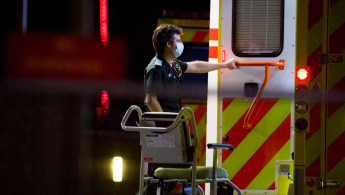Covid-19 is disproportionately affecting BAME groups in the UK
A study conducted by the Intensive Care National Audit and Research Centre found that 35 percent of almost coronavirus 2,000 patients studied were non-white. This is nearly triple the 13% proportion BAME people make up in the UK population as a whole.
The findings have led to calls for more research into why coronavirus is disproportionately affecting non-white ethnic groups.
"This is a signal and it needs to be looked at more carefully," Kamlesh Khunti, professor in primary care diabetes and vascular medicine at the University of Leicester, told the Guardian.
"For example, South Asians live in more deprived areas and have more cardiovascular disease and diabetes."
|
"We need to ensure that every individual, including the BAME population, are following social distancing instructions," Khunti told the Guardian.
We have anecdotal information that it might not be happening in certain BAME groups."
There are also other socio-economic factors at play. NHS workers, as well as transport workers, are disproportionately drawn from ethnic minorities.
Tributes poured in last week for British Muslim nurse Areema Nasreen, 36, after she became the UK's youngest health worker to die from the illness.
The married mum of three was tested positive for the disease whilst working in Walsall Manor hospital in the West Midlands, where she had worked for 16 years.
Hospital bosses and doctors have warned of being swamped by a "tsunami" of Covid-19 patients in London, as the UK braces for a peak in cases and the government faced calls to urgently provide specialist kit and tests for frontline health workers.
The UK initially adopted a light-touch approach to the outbreak but has since imposed tougher measures, including a three-week lockdown, as confirmed cases and deaths climbed.
Frontline healthcare workers say a lack of personal protective equipment (PPE), as well as insufficient testing of staff for Covid-19, is putting them and patients at risk.
Agencies contributed to this report.
Follow us on Facebook, Twitter and Instagram to stay connected





 Follow the Middle East's top stories in English at The New Arab on Google News
Follow the Middle East's top stories in English at The New Arab on Google News


